The Farm Hub partners with academic institutions and regional educators to research and demonstrate agricultural practices that aim to balance ecological resilience and farm viability.
This program serves as a platform for sharing information, innovation, and ideas toward a more resilient agriculture and food systems, one that supports production and ecological goals such as soil health, water quality, biodiversity, and climate resilience.
Research projects focus on regionally adapted varieties of small grains, disease and pest management in vegetable crops, reducing tillage, flood management, and strengthening riparian habitats, among other topics of importance to the farming community. These projects intersect with the work being conducted by our Applied Farmscape Ecology Research Collaborative.
Fostering collaboration with mission-aligned organizations plays an important role in the success of agronomic research at the Farm Hub. Click here to meet some of the researchers and scientists we work with from partner organizations including the Cornell University Cooperative Extension Eastern New York Commercial Horticulture Program York and the Cornell Sustainable Cropping Systems Lab.
2024 On-Farm Research Projects
Impacts on Greenhouse Gas Flux in Annual Vegetable Production Systems in Eastern New York.
This research trial serves as a platform for several projects. Native meadow test plots are designed to assess the feasibility of establishing on-farm habitats under organic management, to measure their effectiveness in supporting both biodiversity and agronomically beneficial creatures, and to build healthy soils.
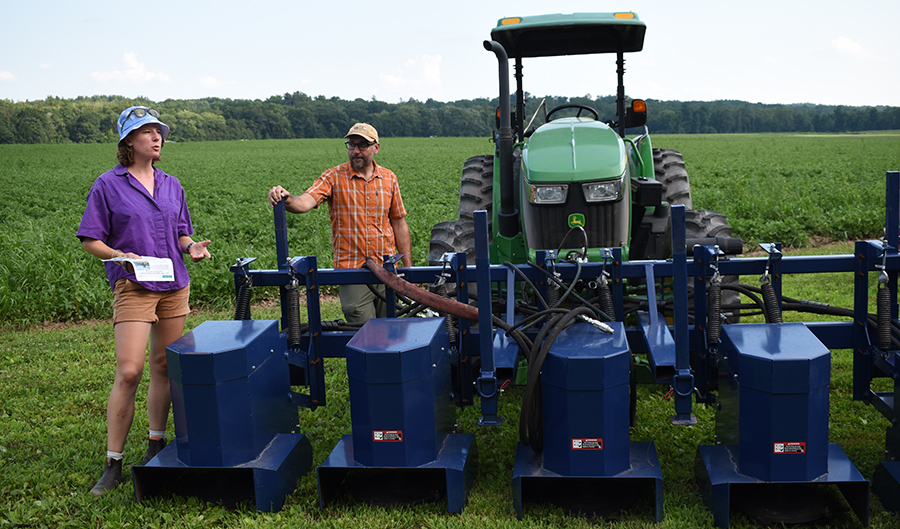
Inter-row Mower
High Tunnel Leafy Green Calcium Deficiency Prevention
The goal of this trial is to improve the quality and yield of leafy greens that are susceptible to calcium deficiency and grown in winter high tunnels. Calcium deficiency has been a problem in our spinach and is common in winter greenhouse production – it can cause tip burn on the leaves. This trial is in collaboration with Cornell Cooperative Extension.
High Tunnel Tomato Potassium Fertility Study
No-till Spring Wheat
Kernza Seeding Rate
In collaboration with Cornell Cooperative Extension, this research trial examines the viability of producing sweet potato slips locally from certified rootstocks. It attempts to address the challenges of relying on out-of-state sourcing by asking the questions: Is it economically viable to produce sweet potato slips in our region and what effect do locally produced slips have on sweet potato yield and quality? Currently, nearly all sweet potatoes produced in the northeast are grown from slips produced in southern states and need to endure long and potentially detrimental shipping journeys to reach farms in our region.
Previous research trials at the Farm Hub
- Allium Leafminer in Garlic: A trial evaluating methods for managing and reducing the onslaught of the Allium Leafminer pest in leeks, scallion, and garlic.
- Fusarium Fungus in Garlic: Two trials at the Farm Hub evaluated methods for managing and reducing fusarium infection in garlic.
- Organic Management of Brassica Diseases: Efficacy study of bio-rational pest control materials in organic management of Brassica diseases.
- Nematode Biocontrol Trial for Wireworms: The Farm Hub studied the use of beneficial nematodes to combat wireworm larvae in sweet potato crops.
- Nematode Biocontrol Trial for the Potato Beetle: The Farm Hub is studying the use of beneficial nematodes (Entomopathogenic Nematodes) for controlling wireworms and Colorado Potato Beetle in potatoes.
- NOVIC: Participating in the Northern Organic Vegetable Improvement Collaborative’s organic seed trial, a national program seeking to increase organic seed varieties for farmers.
- Organic No-till Soybeans Trial: Examined the efficacy of using the roll and crimp method for weed management, and how it can be incorporated into cover crops.
- Root Crops Variety Trial: Evaluating thirty-one varieties of carrots, eighteen varieties of beets, and seven parsnip varieties for yield, appearance, color, taste, and storage ability.
- Taking Tillage out of Organic Crop Rotation: Two distinct trials in collaboration with Cornell University’s Sustainable Cropping Systems Lab, studying 1) methods for controlling weeds in perennial Kernza establishment, and 2) examining the biotic (pest, cover crop growth) and abiotic (soil moisture, soil nutrient, temperature) factors that affect no-till planted cash crops into summer and winter annuals. Read the Final Report.
- Tomato Variety Trial: Part of an ongoing Cornell Cooperative Extension program developing tomato lines with resistance to three destructive plant diseases: late blight, early blight, and septoria leaf spot.
- Whole Farm Organic Carbon-Soil Spatial Variability Study: In collaboration with Woods End Laboratories, this farm-wide soil sampling effort across 1,500 acres will examine carbon reserves in different management zones and soil types.
Reports

The Effects of using Plastic Mulches compared to Bare Ground Raised Ridges and Variety Selection on the Yield and Quality of Sweet Potato Roots
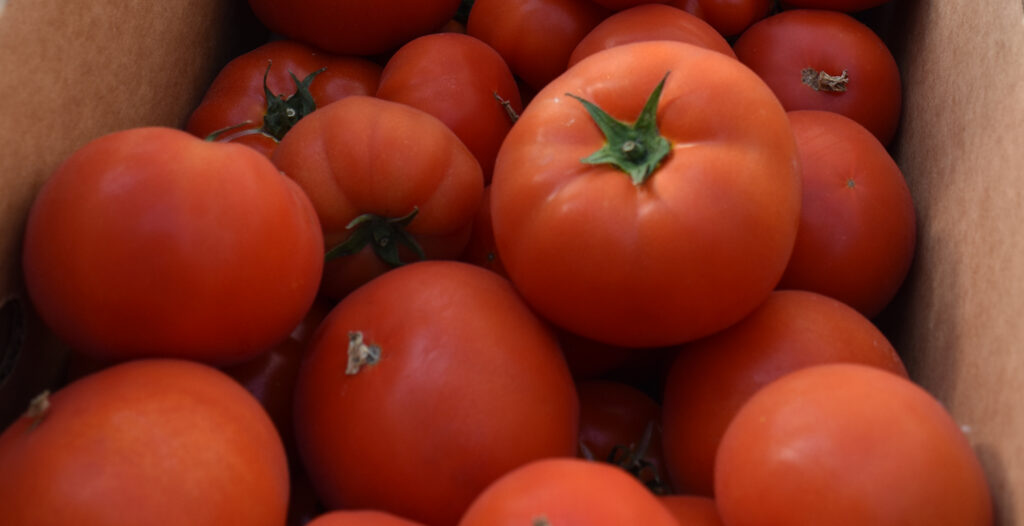
High Tunnel Tomato Potassium Fertility Study
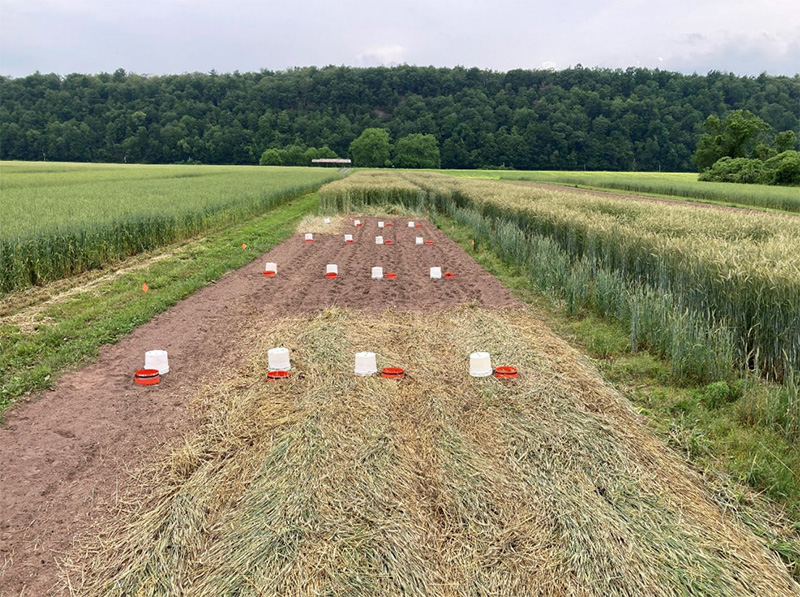
Evaluating Potential Impacts of Biochar on Greenhouse Gas Flux Rates and Annual Vegetable Crop Production in Organic Reduced Tillage Systems

Producing Sweet Potato Slips On-Farm from Certified Rootstocks and Effects of Planting on Plastic Mulches Versus Bare Ground Ridges on Overall Marketable Yield and Quality
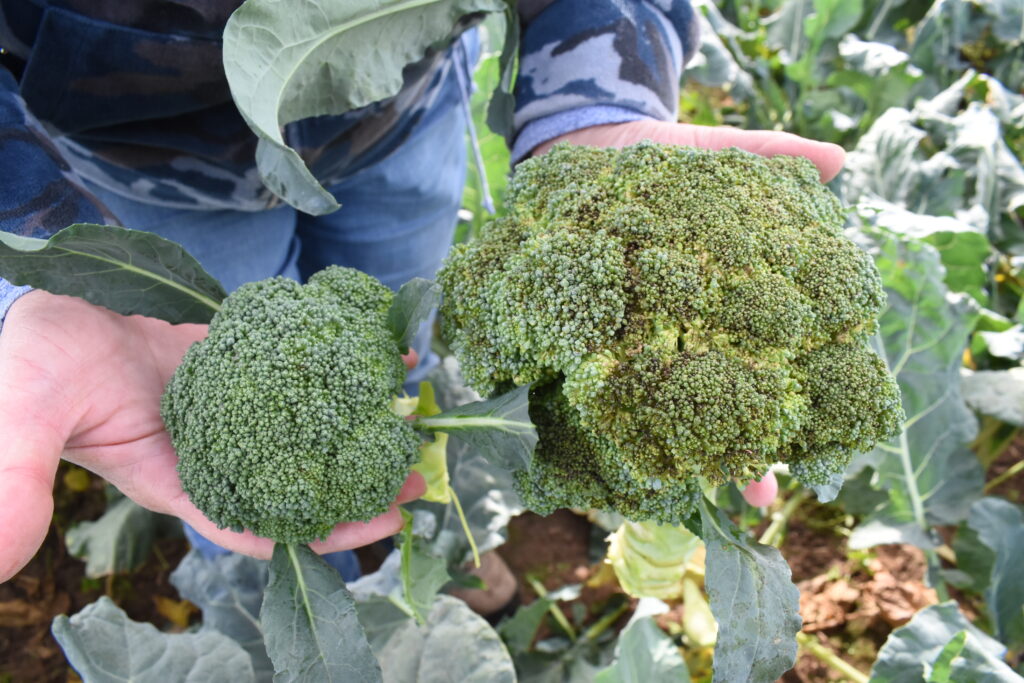
Biofungicide, Biorational, and Copper Fungicide Programs to Manage Alternaria Leaf Spot and Head Rot in Broccoli
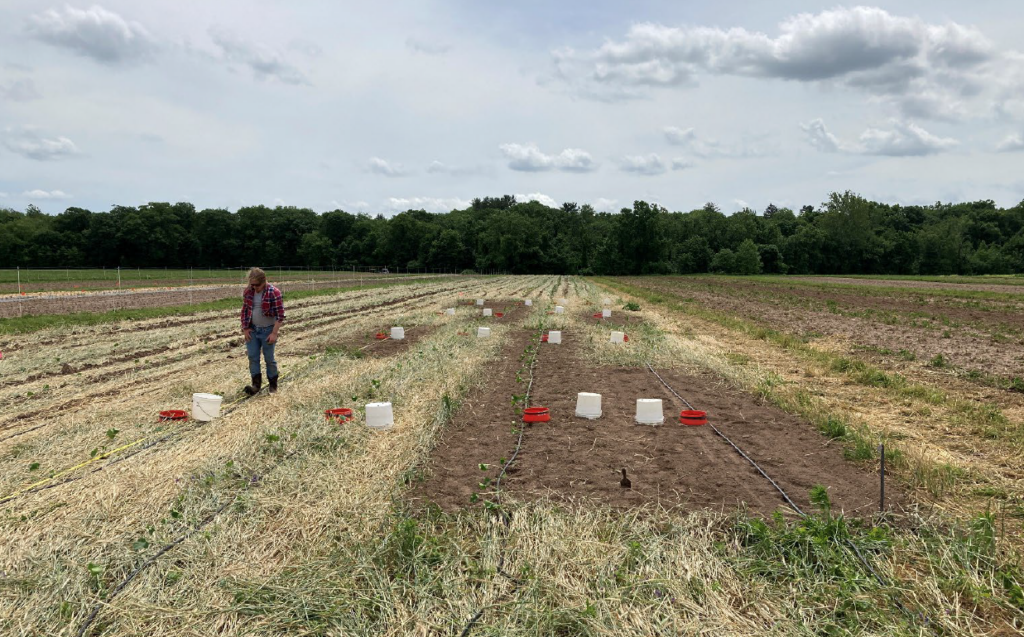
Evaluating Tillage and Cover Crop Impacts on Greenhouse Gas Flux in Annual Vegetable Production Systems in Eastern New York
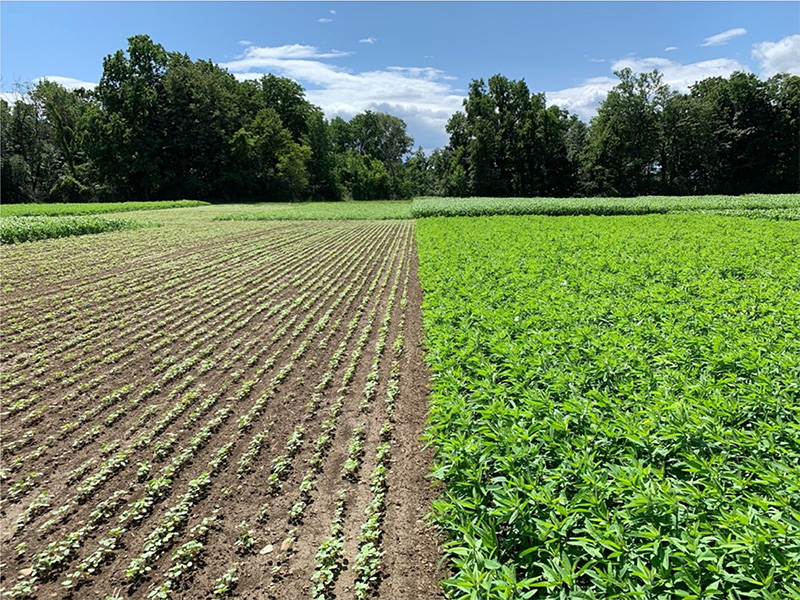
Taking tillage out of organic grain crop production
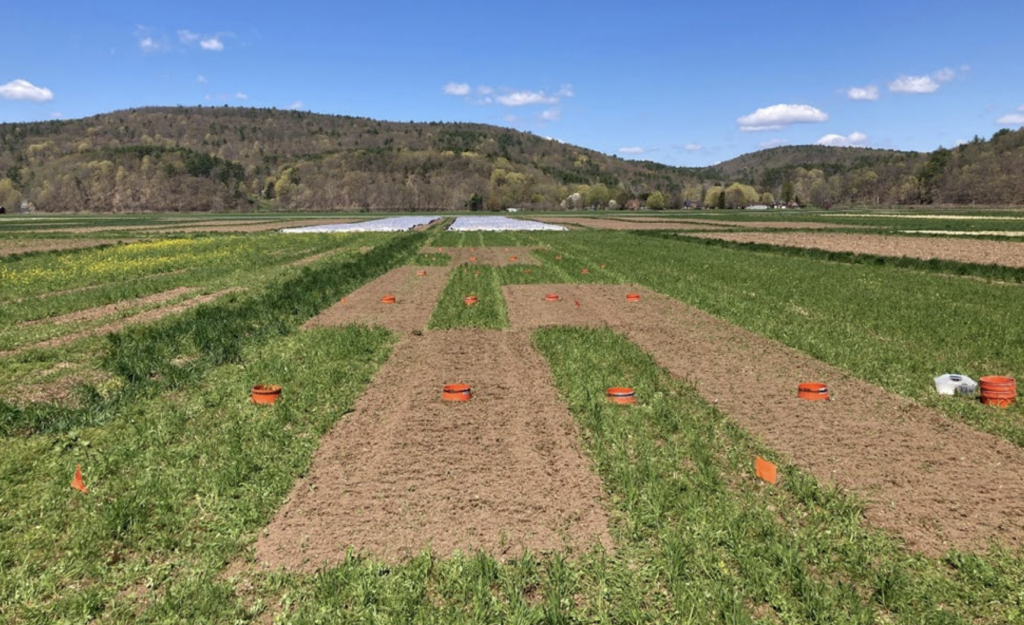
Evaluating Tillage and Cover Crop Impacts on Greenhouse Has Flux in Annual Vegetable Production Systems in Eastern New York
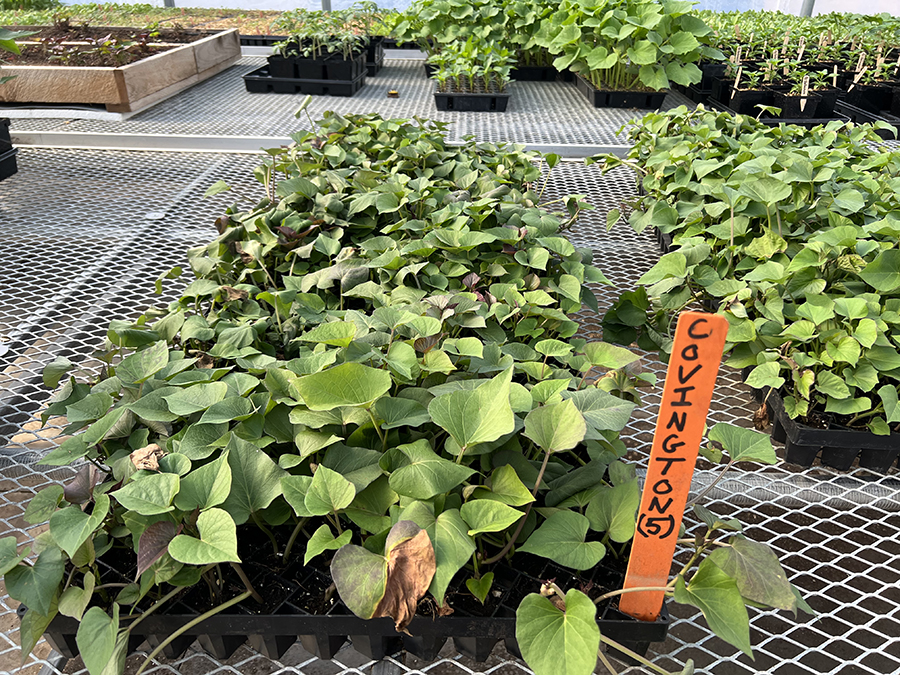
Producing Sweet Potato Slips On-farm from Certified Rootstocks and Effects of Slip Quality on Overall Marketable Yield and Quality
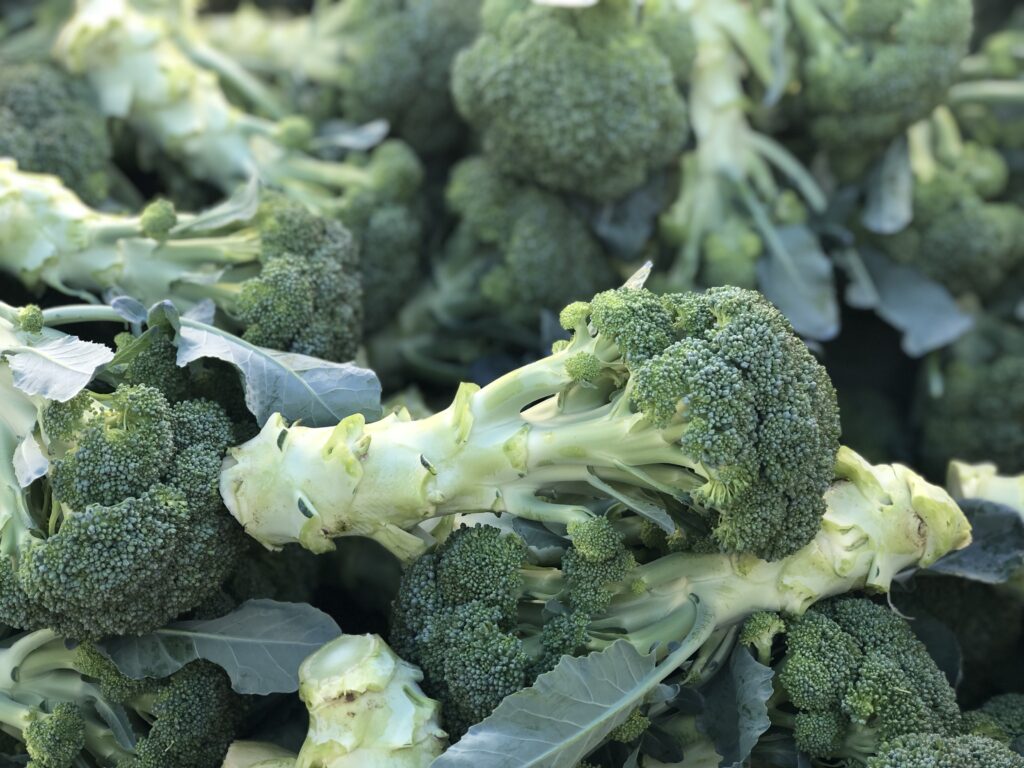
Biofungicide, Biorational Fungicide, and Copper Fungicide Programs to Manage Alternaria Leaf Spot and Head Rot in Broccoli
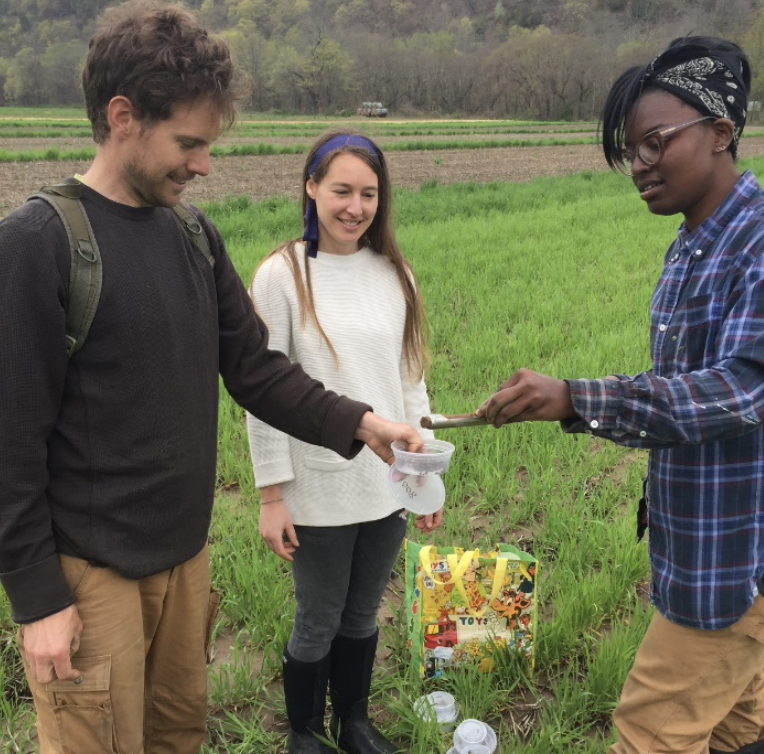
Evaluating the use of Entomopathogenic Nematodes for Controlling Wireworms and Colorado Potato Beetle in Potatoes
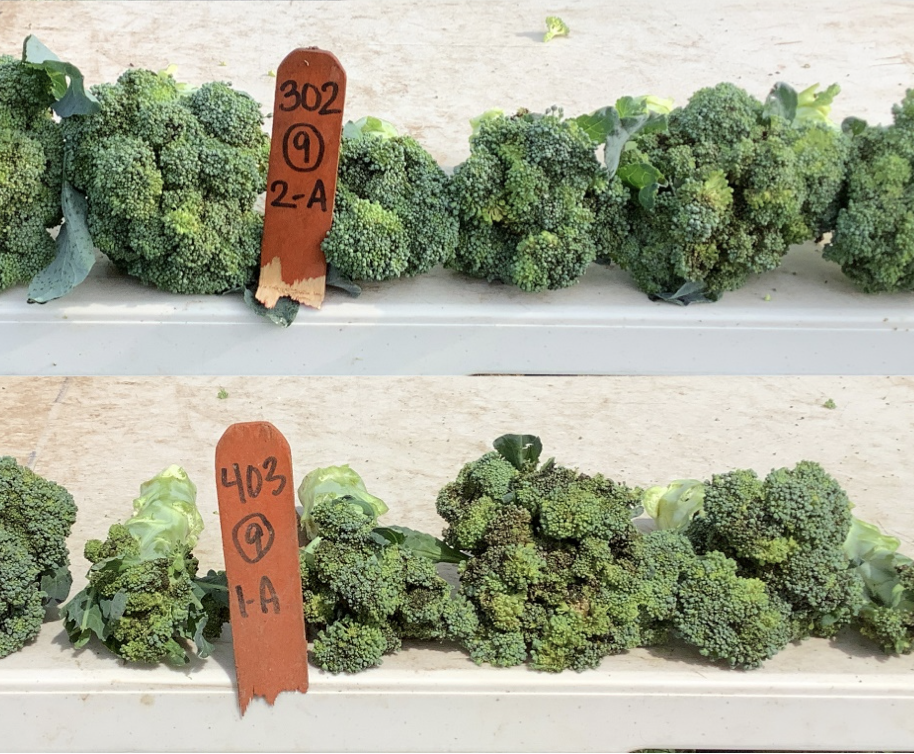
Organic Management of Brassica Diseases: Efficacy Study of Biorational Pest Control Materials
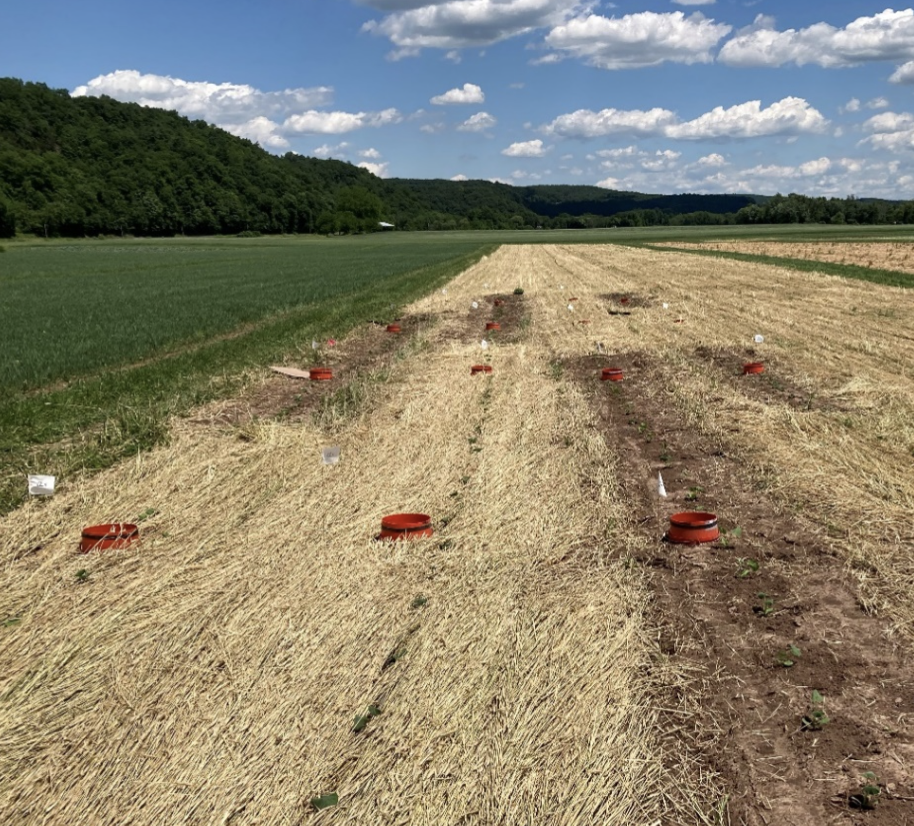
Evaluating Tillage and Cover Crop Impacts on Greenhouse Gas Flux in Annual Vegetable Production Systems in Eastern New York
Rainwise Weather Station
The Farm Hub participates in the Network for Environment and Weather Applications. In 2017, we established a Rainwise weather station on the Farm Hub’s property. In doing so, the Farm Hub contributes to a regional network that helps farmers make informed crop decisions. To view real-time weather conditions at the Farm, click here.
We host events for farmers at the Farm Hub to share findings from our research and demonstration projects.
